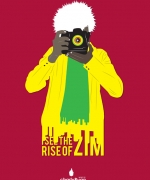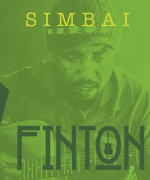Greenpeace Africa!
Greenpeace is an independent campaigning organization that uses peaceful protest and creative communications to expose global environmental problems and promote solutions for the future. With over forty-five offices located throughout the world, Greenpeace works to protect our oceans and ancient forests, and to end toxic pollution, global warming, nuclear threats, and genetic engineering. Since 1971, Greenpeace has been a leading voice of the environmental movement by boldly taking a stand against powerful political and corporate interests whose policies put the planet at risk.
There is an old Native American prophecy about a time when mankind’s greed will overcome the planet. It foretells that in the earth’s darkest hour, a band of rainbow warriors will rise up to unite the good people of the world and lead the way toward a green and peaceful future. It was from this ancient legend that Greenpeace was born and our flagship took its name the Rainbow Warrior. By 1985, some fifteen years after its formation, Greenpeace was well on its way to fulfilling this prophecy. Under the banner of peace and ecology symbols, Greenpeace had successfully pressured the United States to stop nuclear testing, persuaded the international community to pass a moratorium on commercial whaling, and established itself as the loudest and most courageous voice for the planet.
In Africa we have three major campaigns in areas which are vital in the food, social and economic development of our beautiful continent. The first of these campaigns is off the West coast of Africa, the coast of Senegal where we are experiencing the illegal plunder of our ocean resources mainly by Asians and Europeans. That region rates fish as the staple food and have been making a living from fishing for centuries but now with developed nations coming through with their hi tech giant fishing ships we are in danger of losing those resources in the ocean which we thought were infinite.
In the Democratic Republic of Congo (DRC), our campaign goes a long way in protecting the rights and livelihoods of many forest people in the DRC, and in conserving the world’s second largest forest. The flora and fauna continues to perish in this formerly vast Congo Basin forest. Our campaign is geared to protect what is left of this forest and put in place measures to replant sections that have been destroyed. Our last campaign is very exciting and has a major effect on everyone’s daily lives. The Copenhagen Climate summit is focused on monitoring carbon foot print in our planet which is slowly dying from the rot. South Africa by virtue of being the most developed nation in Africa also happens to be the biggest polluter and as Greenpeace we feel that South Africa has a responsibility to the rest of Africa to lead the way in finding solutions to reduce climate change. We advocate for the use of natural but green sources for power generation. With the growth of African economies in mind electricity is key and we feel our leaders in Africa should invest in solar, bio mass, hydro and wind power sources. In the context of Zimbabwe, it’s more of a change of attitudes and focus on environmental issues. I feel sad to say that we lag way behind most of our African counterparts when it comes to caring, maintaining and educating people about the importance of the environment.
We have been gifted to have some of the most spectacular and breath taking wild life and environment but sadly due mainly to greed we have failed to put measures in place to protect that heritage for future generations. I urge you to follow simple steps to ensure that we safe guard these resources. We should start recycling, planting trees, minimizing use of our vehicles, growing our own vegetables, educating our young and old about the effects of global warming. Highlighting the change of rain patterns as proof that global warming is affecting our livelihoods. We have to start putting measures in place from primary schools through to Universities on the merits of investing in the protection of our environment. In mining areas we should invest in environment reclaiming, especially in open cast mining areas like Hwange. We should stop using chemicals that kill off good bacteria in our farm lands and we should get into the practice of planting indigenous trees.
For more info on the impact of our work, visit www.greenpeaceafrica.org




